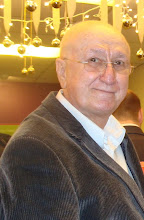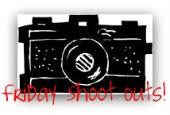The corridor is empty on the second floor of the Toronto General Hospital, the reception desk at the Medical Imaging Department is closed and gated. No one sits in the reception area. I walk on, my footfalls echoing in the silence. Where is everyone? Where is anyone?
I had received a phone call on Friday to report to the medical imaging department for a complete MRI of my spine. The surgeon hadn't mentioned ordering such a test during my visit with her on Thursday; but obviously she had decided the more information she could gather about the hot spot in my backbone the better.
I had carefully written the time and date down and here I was at the right place at the right time in a completely empty section of the hospital.
I wasn't certain what to do. So I walked further down the corridor, my foot falls echoing behind me. I pushed through a couple of glass doors into another section and the corridor stretched off into the far distance, quiet and empty.
But at the very end of the corridor I saw a large hand written sign that read "MRI", with an arrow pointing to the left.
That looked hopeful.
I walked on. To the left of the sign, where the arrow pointed, was a very tiny waiting room, which was also empty. And quiet.
Not knowing what else to do, but feeling a little foolish, I sat down and waited. Alone, in the silence of the empty building.
I thought about the strange dichotomy between how well I feel and how well the machinery of modern medicine tells me I am. I have been feeling much stronger over the past two weeks, eating better, walking further, beginning to exercise regularly. But over the same period, one of my two primary cancers has spread to my spine. So, although I am feeling significantly better, I am in fact getting significantly worse.
Odd that. And disconcerting that I can no longer trust my feelings to give me accurate information about my state of health.
I sat alone with those discouraging thoughts in the silence of the large and seemingly empty building.
Ten minutes later I was about to give up waiting, when I finally heard the footfalls of someone approaching.
A tall bearded man in a white lab coat rounded the corner, a sheaf of papers in his hands.
"Barry?" he asked.
I agreed that was my name.
"I'm glad you didn't take off on us. We're only open Sundays for special patients and as you can see, our service is paired down to the minimum." He handed me the papers, "I'll need you to read through these and sign the consent at the bottom."
The papers listed all the places metal objects could be hidden in the human body, from piercings to heart monitors to metal shards in the eyes of welders. None of them applied to me. But if any of them had, they could be ripped out of my body by the powerful magnets in the MRI machine.
I signed and was given a hospital gown to change into and then led down to the MRI machine. A cap was put on my head, a thickly padded head set covered my ears and I laid down on the table that would feed me into the machine. A clamp locked my head in place and I was given a "panic button" to hold in case the experience got too intense.
The techie left for the back room, and the table rose up and I was fed head first into the machine, my nose a mere inch from the top of the tube. Cool air blew down the length of the tube and the repeated blast of a klaxon shattered the lingering silence of the hospital.
I settled in for 45 very noisy minutes of magnetic imaging. In the empty hospital. On a Sunday afternoon.
The results, of course, I likely won't know until later in the week, after they also get the results of a still to be scheduled biopsy at Toronto Western Hospital.
After the MRI I went back down to the main lobby of the building where Linda waited and we headed home to enjoy what remained of our weekend.
The Snow Pile and More
15 hours ago




